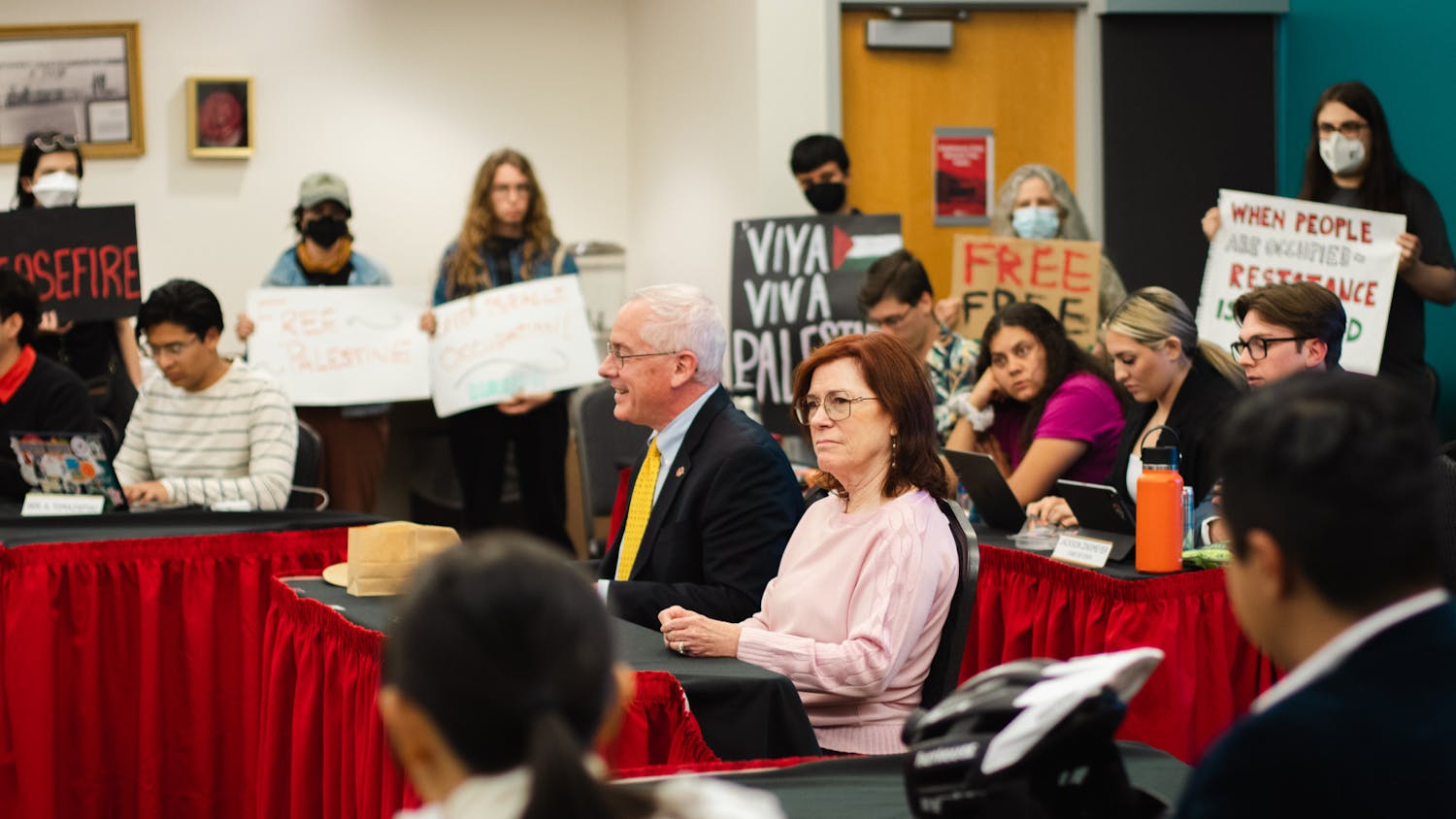A Santa Fe woman is being tested at UNM Hospital for possible infection of the Ebola virus, according to a press release from the New Mexico Department of Health.
Although she is not considered a probable case, UNMH has isolated the patient out of caution and is following the appropriate protocols to ensure other patients and health care workers are safe, according to the press release.
The woman returned from Sierra Leone, Africa, earlier this month and developed a sore throat, headache, muscle aches and fever — all symptoms of Ebola, according to NMDOH. Other symptoms for Ebola include diarrhea, vomiting, abdominal pain and lack of appetite, according to The Centers for Disease Control and Prevention’s Ebola Hemorrhagic Fever Information webpage.
The woman being treated at UNMH had no known exposure to Ebola while in Africa, according to NMDOH. Symptoms may appear anywhere from two to 21 days after exposure to the virus, and a person infected with the Ebola virus is not contagious until symptoms appear, according to the webpage. The virus is spread through direct contact of body fluids with broken skin or mucous membranes, according to the CDC. Ebola does not spread through the air, food or water.
The 2014 Ebola outbreak is one of the largest in history and is affecting the West African countries Guinea, Liberia, Nigeria and Sierra Leone, but does not pose a significant risk to the American public, according to the webpage.]
“While it’s possible that someone could become infected with the Ebola virus in Africa and then get on a plane to the United States, it’s very unlikely that they would be able to spread the disease to fellow passengers,” said Stephan Monroe, the deputy director of CDC’s National Center for Emerging Zoonotic and Infectious Diseases, at a July 28 briefing.
Ebola does not have a known, proven treatment and the current standard treatment for Ebola is still limited to treating the symptoms as they appear as well as supportive care, Monroe said.
“Most people who become infected with Ebola are those who live with and care for people who have already caught the disease and are showing symptoms,” he said.
Monroe said that some who become sick with Ebola are able to recover, and it is not fully understood why.
The CDC said in an Aug. 6 press release that U.S. hospitals can safely manage patients with Ebola with isolation of patients, diligent environmental cleaning and disinfection and protection of health care providers.
Monroe cited cases of patients infected with the Marburg virus being diagnosed and treated in western health care settings. In both incidences, he said, the patients were treated with standard barrier nursing and infection control practices and in neither case was there any evidence of care-associated transmission.
“While it is clear there is an increased risk for working with patients with Ebola, we’re confident that the standard of care in the U.S. would prevent much of the transmission if a case were to show up here,” Monroe said.
Get content from The Daily Lobo delivered to your inbox
On Aug. 5, the CDC issued an Alert Level 2 travel notice for travelers to Nigeria and a Warning Level 3 Travel Notice for Guinea, Liberia and Sierra Leone, advising people to avoid nonessential travel to these countries. The director for Global Migration and Quarantine, Marty Cetron, explained at the briefing the three levels the CDC uses: Level one is a watch, which is
“practice usual precautions around outbreaks.” Level two is an alert, which is “enhanced precautions.” In this case, special recommendations either to populations at risk, such as health care workers or humanitarian aide workers or particular areas where the risk is high that goes beyond just a routine outbreak. Level three is a warning, which is to “avoid nonessential travel” if you don’t have a reason to be there.
Erika Eddy is a freelance reporter for the Daily Lobo. She can be reached at news@dailylobo.com.





